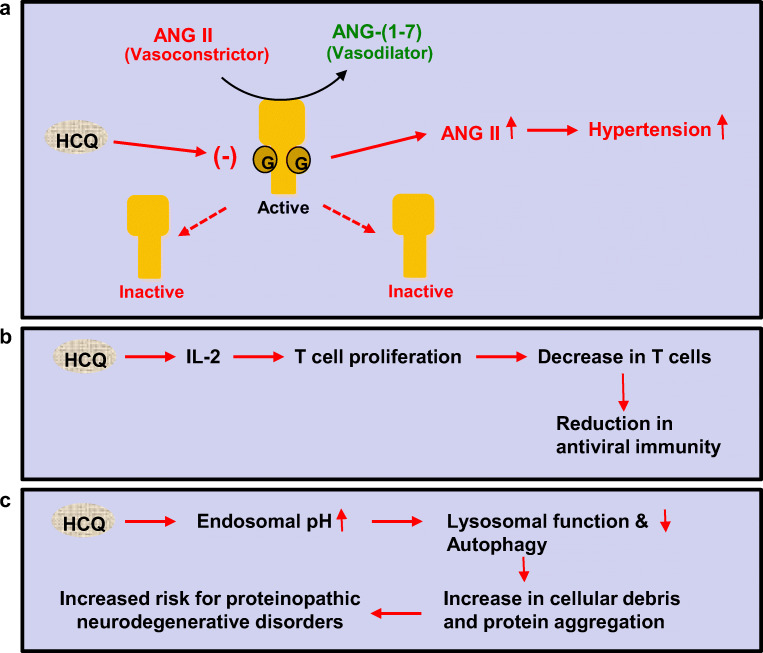Fig. 3.
Possible deleterious effects of HCQ. a ACE2 catalyzes the production of angiotensin 1–7 (a vasodilator) from angiotensin 2 (a vasoconstrictor). The ACE2 receptor needs to be glycosylated to be active. HCQ can inhibit glycosylation and therefore inactivate the receptor, ultimately causing greater amount of vasoconstrictor to remain active. This can potentially be harmful for patients with hypertension and cardiovascular problems. b IL-2 is needed for T cell proliferation. This allows the immune system to fight off viral infections. HCQ can decrease the proliferation of T cells via inhibiting the production of IL-2, ultimately affecting the body’s anti-viral immunity. c By increasing the endosomal pH, HCQ decreases autophagy. Therefore, damaged cell components and proteins would aggregate and this can increase the risk of neurodegenerative disorders in which abnormal protein aggregation is the cardinal feature

